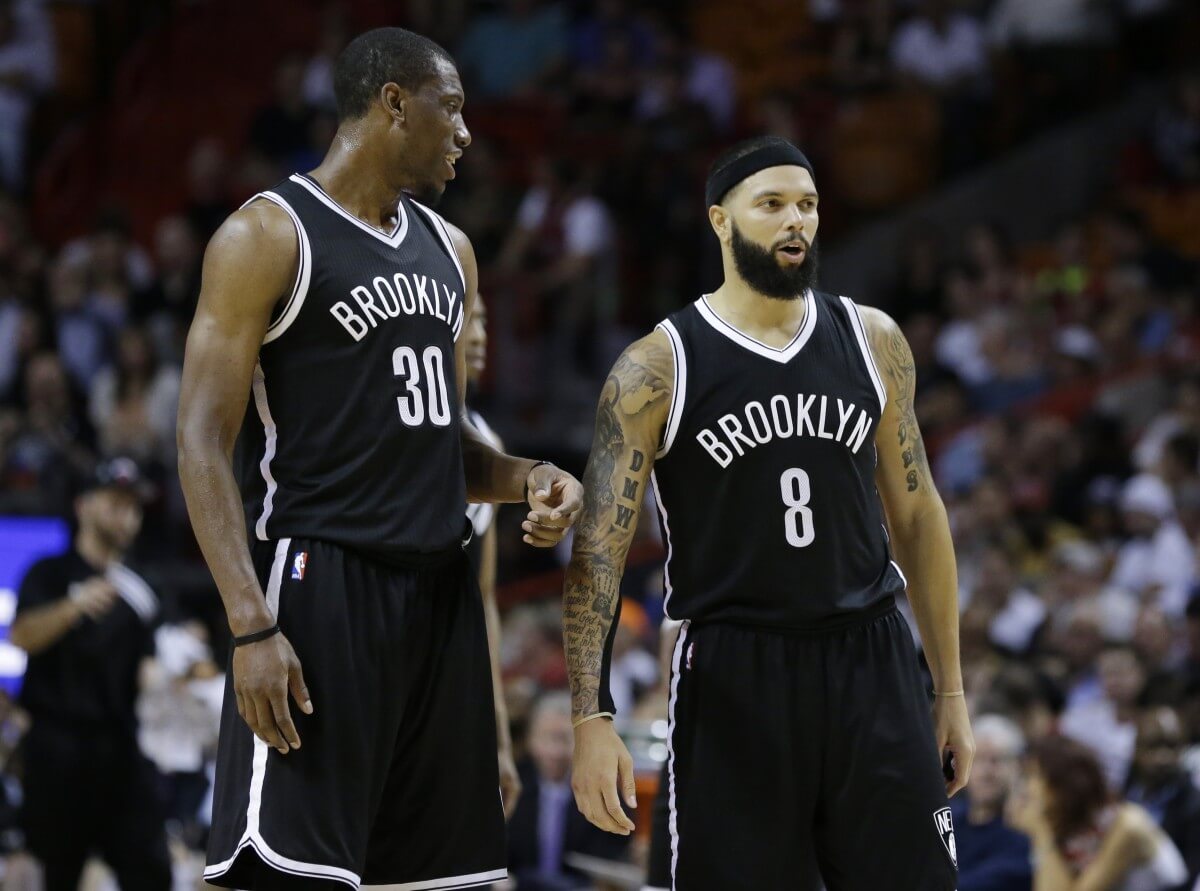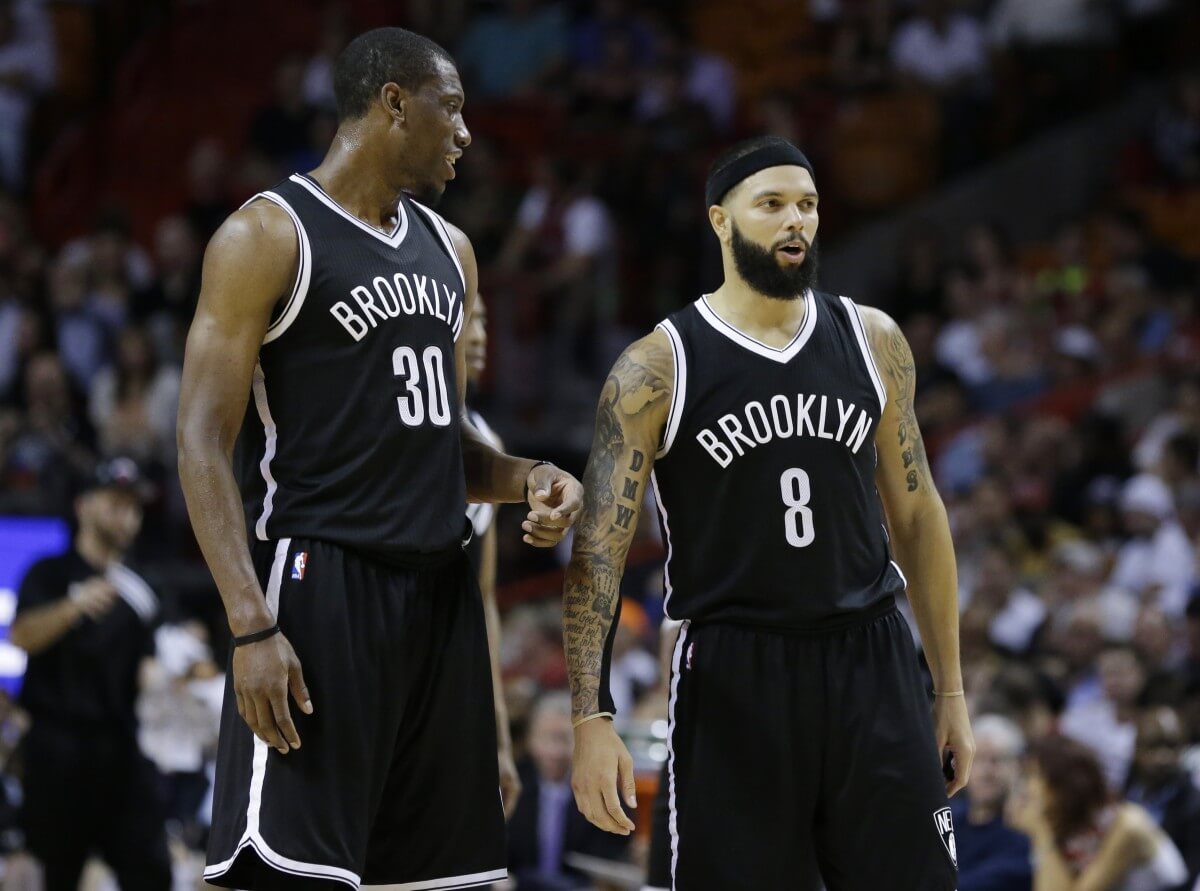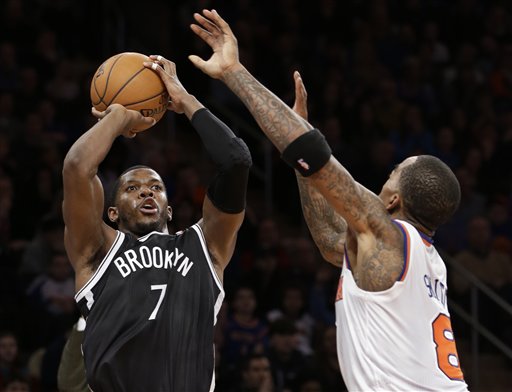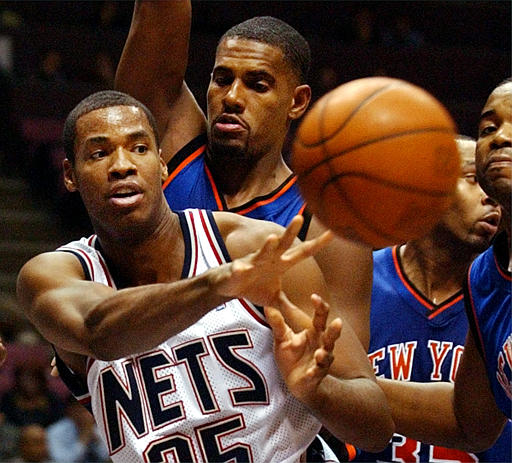
It’s been no secret over the past eight months that the Nets have explored the slim trade market for Deron Williams, he of the oversize contract and middling-at-best production.
But thanks to the new salary cap, exploring the market beyond this year might even be harder than before.
Here’s why: Williams has a 15% trade kicker built into his contract. Until this past year, that kicker appeared to be irrelevant; you can’t “kick” a player’s salary above what his maximum would be otherwise, and Williams’s max deal came with an annual raise that would keep his salary above the maximum. (Read the linked article above for more on how the machinations work — and again, keep in mind that it is no longer irrelevant.)
But Williams signed his contract before the mega-deal between the NBA & ESPN was even a gleam in Adam Silver’s eye. No one expected the cap to rise as suddenly as it will next offseason, and even this upcoming season’s salary cap, set at $70 million following the league audit Wednesday, means Williams’s salary will in fact “kick” up if he’s traded.
It’s a little complicated, so here’s the basics: if Williams is traded this offseason, his salary this year will “kick” up about $2 million in 2015-16, from $21.04 million to $23.07 million. His salary in 2016-17 would stay the same, since it’s technically still considered an option year.[note]Trade bonuses reflect only what’s guaranteed money at the time of the trade, and Williams’s Early Termination Option is not considered guaranteed until he elects not to waive it.[/note]
If he doesn’t opt out and he’s traded in the 2016 offseason, Williams’s salary would kick up the full 15 percent, from $22.3 million to around $25.7 million. That’s an increase of $3.4 million — around the cost of the taxpayer mid-level exception.
A team dealing for Williams next offseason would have to send at least ~$20.5 million back to the Nets to match salaries if they’re over the cap.
It’s important to note that the bonus is negotiable. Williams could elect to waive a portion or all of his trade kicker, forfeiting an extra few million to help facilitate a trade to a new team. Given that Williams declined to speak to the media following the season, it’s possible that he’s looking to move on.
Another option is that another team could conceivably construct a trade, and only agree to put it through if Williams decides to waive the extra money. But he’s still entitled to the bonus in his contract.
Granted, the salary cap will be higher, giving teams more room to maneuver. But it’s a large chunk of change to risk. It’ll take some fancy maneuvering with the salary cap to get a workable deal on the table, and that’s assuming that a market opens for Williams despite his injury history and downward-trending production.
This article has been updated to reflect the release of the 2015-16 NBA salary cap.


















